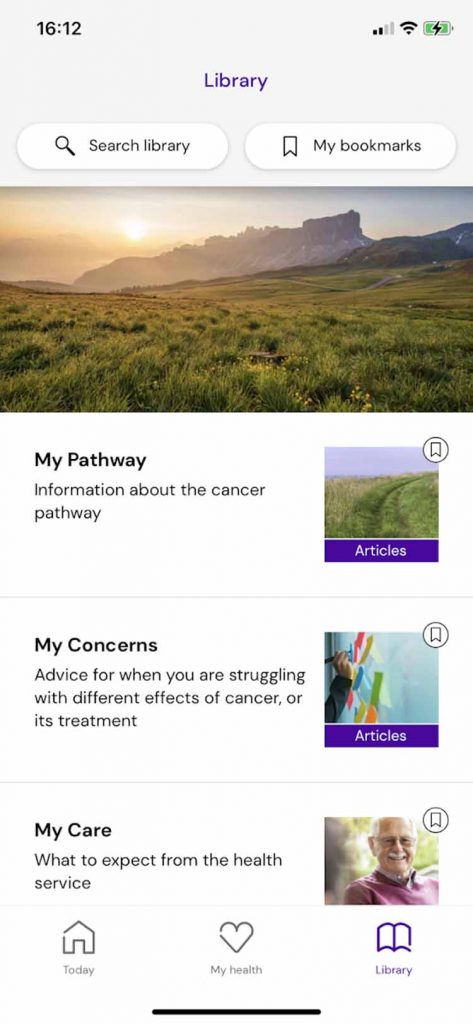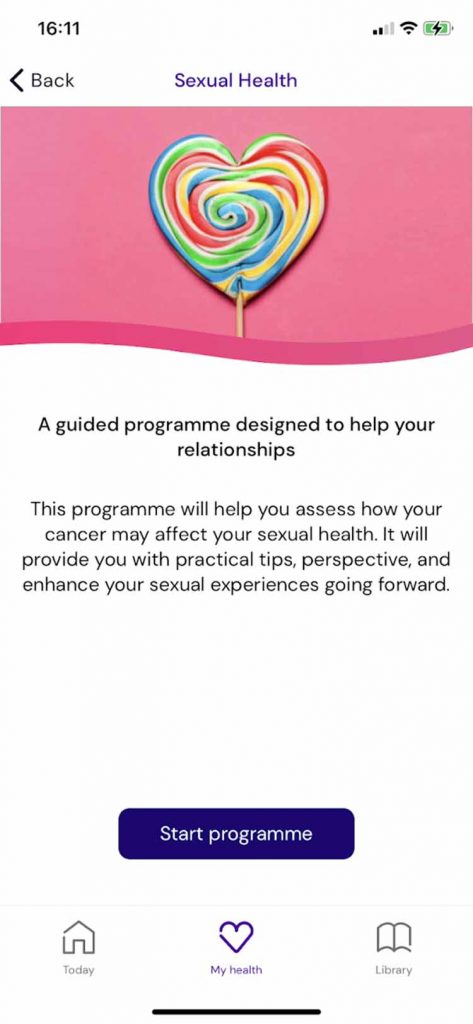Prostate Cancer
Patients find it useful to self-manage their condition with, and receive clinic support through, Living With Prostate Cancer.




Solution
Features
- messaging
- patient and clinician enrolment
- file attachments
- goal tracking
- symptom tracking
- medication tracking
- cross-condition outcome measures: FACIT-Fatigue, GAD-7 and PHQ-8 or PHQ-9
- cross-specific outcome measures: ICIQ-UI and SHIM
- bladder diary
- library of clinically-validated articles
- Squeezy and PFME exercise plans (reminders and tracking)
PSA tracking - Prostate Cancer and Sexual Health programme
Benefits
- monitor and support prostate cancer patients after diagnosis and during treatment
- support “watchful waiting”
- increase patient engagement with their treatment
- increase patient motivation to follow clinician-directed plans
- increase patient understanding
- increase patient adherence to pelvic floor muscle exercise and relaxation programmes
- improve patient outcomes
- support clinicians in providing sexual health information
Results
For information on the efficacy of Living With’s cancer products head to the Evidence page.
Here is some patient feedback from a pilot carried out on Living With Prostate Cancer by UCL:
- “Very convenient to have all these app features and things to do and look at in one place. It’s also good to share my trajectory, my journey with my doctor or friend. If in the waiting room I sat next to a newly diagnosed prostate cancer patient I would say: There’s this fantastic app, and this is me being truthful, there’s this fantastic app—it pulls a lot of stuff together which you and clinicians can act on.”
- “It’s increased my understanding of the different aspects of the disease […] it has changed the way I think about things.”
- “I would recommend this [app] to other prostate cancer patients. It is very informative. Very useful, and good for motivation.”
- “The app—I feel like it’s part of my normal go to places for information now, and it’s something I do look at most days. I’m really happy with the app: If someone took it away, I would be fighting to have it back, so I think it’s a really useful thing.”
“The app is finding the balance between not too many reminders but enough to engage with it. I was concerned that the app would put cancer into my face. But no, it hasn’t. There’s been no extra issues, or days, or times, moments where I thought, “Oh, that bloody app keeps reminding me about cancer”. So please, now get people on the app right at the beginning of their journey, and I think every urologist, or oncologist, at the major hospitals should have the leaflet about it that they can give to the patients, say, “Look, you may find this useful app for all information, and there’s a diary and recording information.”
- “The app is a very good reference and starting point for information about prostate cancer, diagnosis and treatment. And as a way of monitoring your condition from diagnosis through to whenever you decide you don’t need the help.”
- “I think the biggest care at the time were along the psychological support and the psychosexual therapy support, which is why I think the app is particularly good in terms of the psychosexual therapy support, I think this is the best I’ve seen. I think psychological support is available in certain places on the NHS, but it seems to be very sketchy. And psychosexual support is even sketchier. I know lots of people who just don’t get that level of support.”


